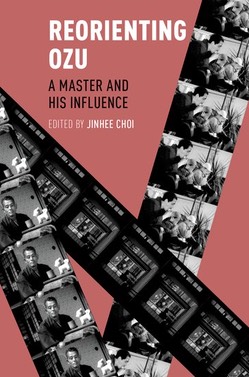
As part of my research on the history of Japanese film theory, I have taken advantage of opportunities here and there to approach the subject—and individual thinkers in particular—from various angles. One such occasion was a conference in Berkeley in 2010 centered on the place of Ozu Yasujiro within Asian cinema. I took the opportunity to triangulate some relations that, while not always direct, were suggestive not just about Ozu but also about the place of theory in contemporary Japan. In particular, noting the often facile comparisons between Ozu and the Taiwanese director Hou Hsiao-hsien, I wondered if there was not a better way to relate the two filmmakers by considering the thinking of Hasumi Shigehiko, the famed film critic and university president who was a champion of both Ozu and Hou. Even if he denied any direct similarity between the two, his approach to the two reveals both how contemporary Japanese theoretical discourse articulates the cinema and the Ozu-qua-Hasumi context behind Hou’s reception in Japan. My contribution also served as a good opportunity to summarize Hasumi’s approach to cinema—which can be highly theoretical even as it resists theory.
Jinhee Choi at King’s College in London decided to work this into a book anthology, but the result was quite different from the original conference. Only a few papers remain from that event, mine being one of them, as the scope expanded to Ozu’s influence on world cinema as a whole.
The result is the anthology Reorienting Ozu: A Master and His Influence, published by Oxford University Press (2018; ISBN 9780190254971). Here is the table of contents:
Branding Ozu
1. Watch Again! Look Well! Look! David Bordwell
2. Ozu, The Ineffable Darrell W Davis
3. Ozu to Asia via Hasumi Aaron Gerow
4. A Dialogue with 'Memory' in Hou Hsiao-hsien's Café Lumière Mitsuyo Wada-Marciano
5. Ozuesque as a Sensibility: or On the notion of Influence Jinhee Choi
Historicizing Ozu
6. A New Form of Silent Cinema: Intertitles and Interlocutions in Ozu Yasujiro's Late Silent Films Michael Raine
7. Ozu and the Aesthetics of Shadow: Lighting and Cinematography in There Was a Father (Chichi ariki, 1942) Daisuke Miyao
8. Modernity, Shoshimin Films and the Proletarian-Film Movement: Ozu in Dialogue with Vertov Yuki Takinami
9. Laughing in the Shadows of Empire: Humor in Ozu's Brothers and Sisters of the Toda Family (1941) Junji Yoshida
Tracing Ozu
10. Autumn Afternoons: Negotiating the Ghost of Ozu in Iguchi Nami's Dogs and Cats - Adam Bingham
11. Playing the Holes: Notes on the Ozuesque Gags Manuel Garin & Albert Elduque
12. Rhythm, Texture, Moods: Ozu Yasujiro, Claire Denis and a Vision of a Post-colonial Aesthetic Kate Taylor-Jones
13. Wenders Travels with Ozu Mark Betz
14. Look? Optical / Sound Situations and Interpretation: Ozu - (Deleuze) - Kiarostami David Deamer
15. Sparse or Slow: Ozu and Joanna Hogg William Brown
It’s an exciting line-up, with many interesting topics.

